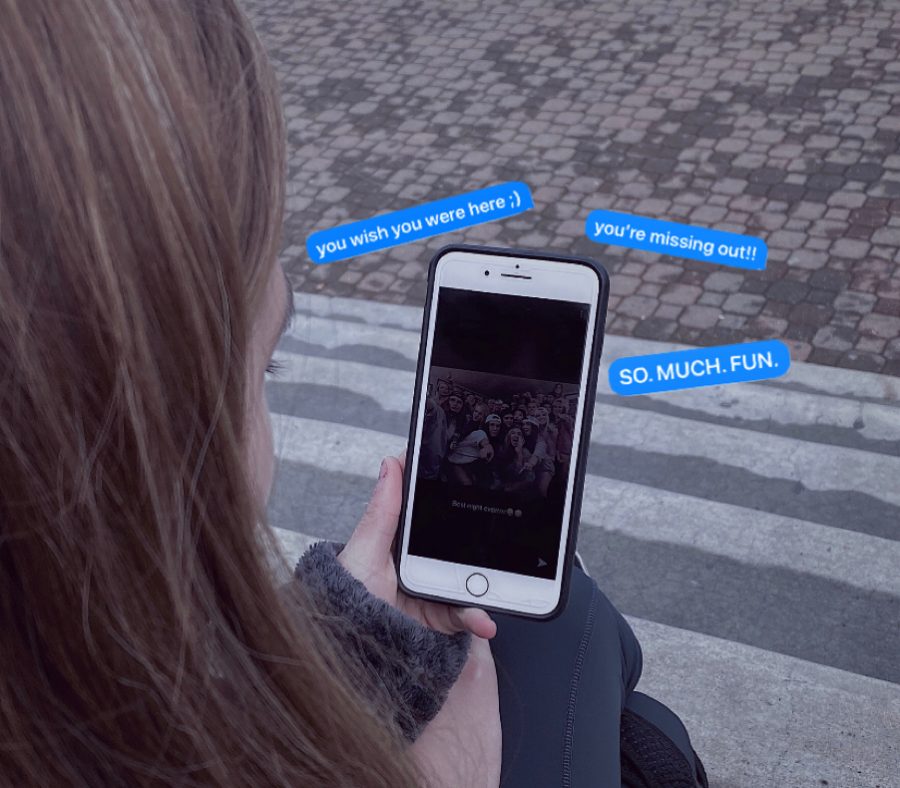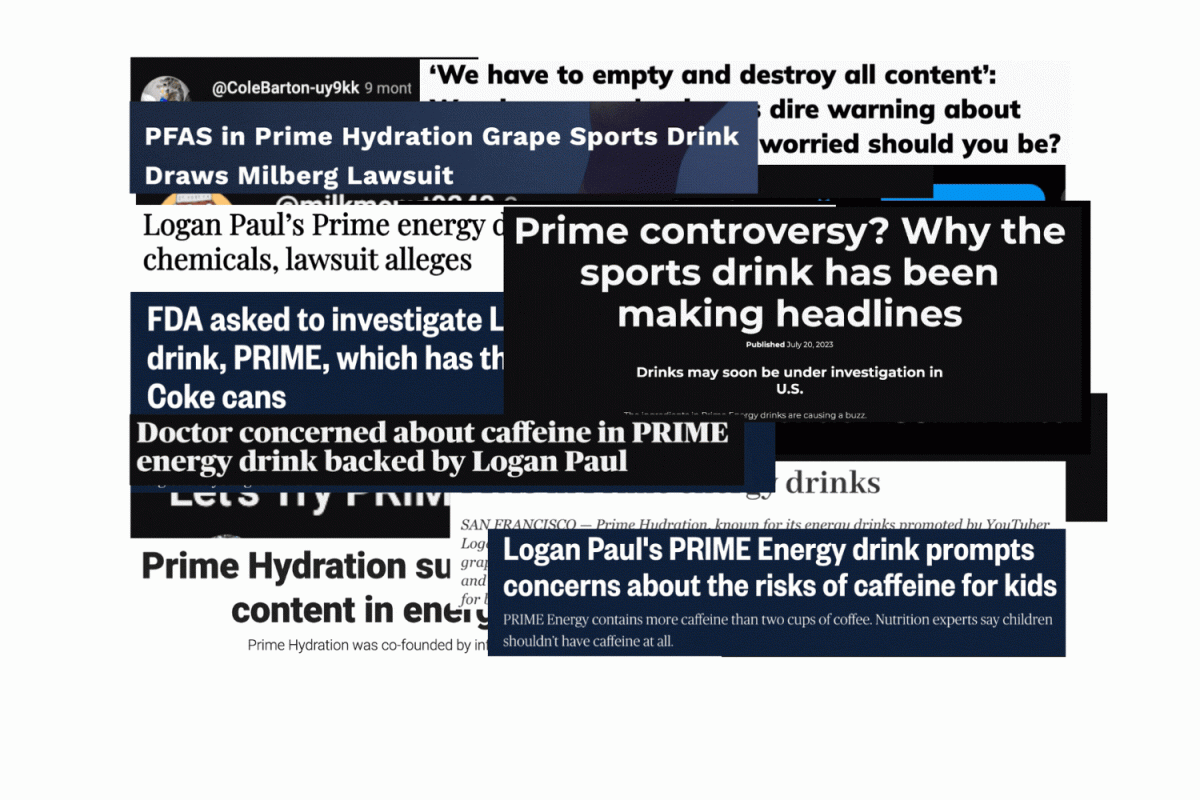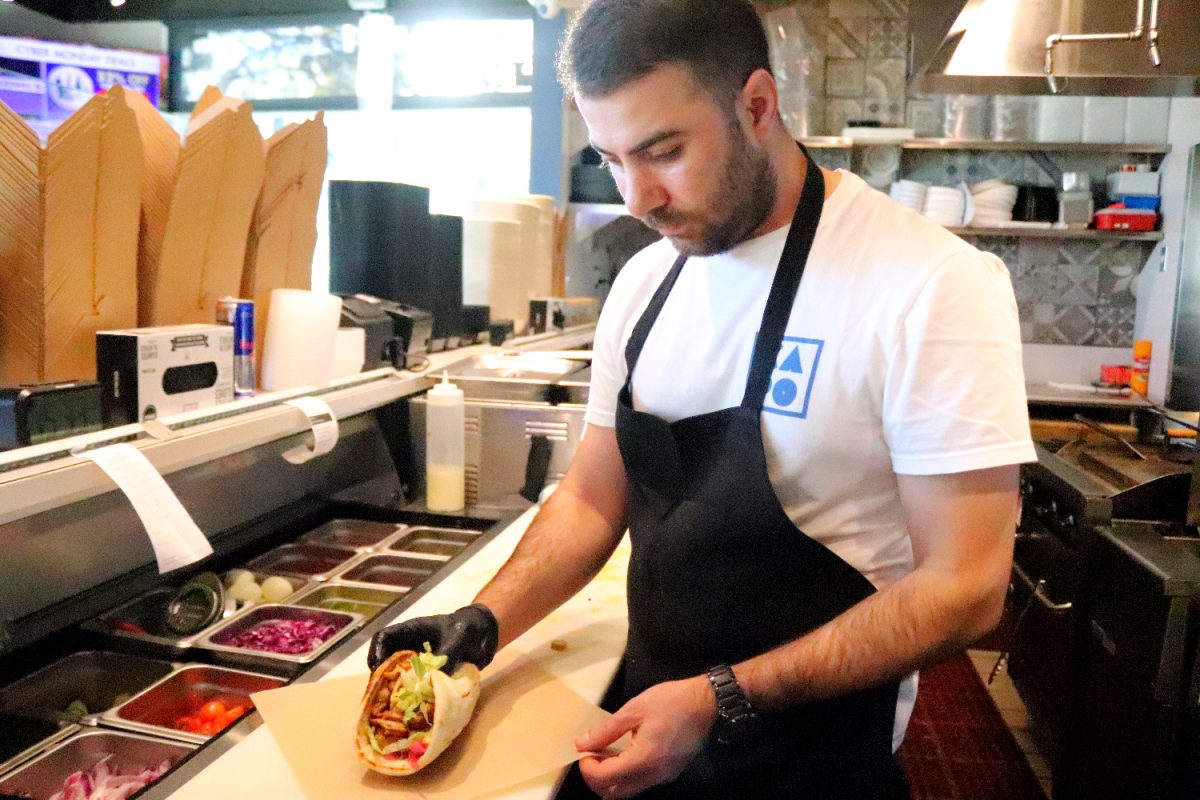“You’re missing out.”
The grey bubble pops up on your phone as you sit in bed, “The Office” humming throughout your room. Your friends are at the movies, seeing a film you don’t even care to see.
You still feel left out.
You look through the various Snapchat stories of your peers. Your crush is at that party you didn’t want to go to.
Still, you are disappointed.
It’s formal night, and pictures of all your friends and their dates pop up on your Instagram feed. You couldn’t go; you’re busy studying after your dad screamed at you for getting a D on your last test.
“Seriously, you’re missing out.”
The fear of missing out, more commonly referred to as “FOMO,” represents the feeling of envy one gets after feeling left out of social scenarios. According to Dr. Lauren Hazzouri, FOMO is a common form of social anxiety that even dates back to ancient times.
Many factors influence this mindset, such as social media, one’s peers, and the need to fit in with society. As society’s standards rise and technology develops, it seems that there have been more and more cases of people struggling with the mental block of them missing out on popular trends or events.
Alan Zamora, a Belmont librarian, observes how difficult maintaining a social life can be for students who come to the library on Fridays after school to study. He often sees them sitting alone, powering through their schoolwork.
In contrast, the majority of high schoolers spend their Friday evenings with friends, at parties, or attending other social events. The latter tend not to get invited or are too busy with academics or other extracurriculars to be involved.
“A lot of people feel like they have to be included in something to feel happy, so a lot of people start to feel left out,” Zamora said.
This fear is seen among all people, no matter age or gender. Adults may experience FOMO from not being able to attend essential work gatherings, and children may experience FOMO from their parents not being able to afford to buy them the newest technology like that of their peers. As a result, one can start to feel anxious, depressed, or weary of rejection.
“FOMO is just the worst feeling in the world,” said Samantha Kosman, a freshman.
In recent years, the advancement of technology has soared to astonishing levels. Despite the incredible improvements it has made for society, many argue that technology is the basis for a decline in one’s mental health.
The most dominant factor that contributes to this decline is the numerous social media applications available in today’s world. Some tend to find scrolling through nonstop postings of events they were not able to attend from their peers to be deceiving and bothersome.
“Research shows that when people look at posts, they have symptoms of depression and are less likely to be happy,” said Edna Esnil, a psychologist who specializes in evidence-based anxiety.
For Mason Hoeflich, a junior, his mental health was a primary concern in his sophomore year. When he was hospitalized during prom, his stay in the hospital became even more challenging. Hoeflich was supposed to go to the dance with his friends, but instead suffered the effects of FOMO when he wasn’t able to attend.
“I went to bed that night in the hospital thinking of all the fun everyone would have at prom, and obviously, that’s not the best thing to do for your mental health,” Hoeflich said.
However, more often than not, the situation one is put in is not in the person’s control. Yet, the symptoms of FOMO haunt them nonetheless.
“I had nothing else to think about, and it almost made me angry in a way, not at the people who were having fun, but just at the overall situation,” Hoeflich said.
Though some may view the feeling as a “scary” condition or mental state that contributes to anxiety, it’s surprisingly common. Whether people are browsing through countless Snapchat stories wishing to be at that high school party or not being able to attend their best friend’s baby shower and lamenting at all of the pictures, most everyone experiences through FOMO with different levels of severity.
“While we may not all experience severe social anxiety, sadly, many of us have pretty bad cases of FOMO — even if we’re unwilling to admit it,” said Darlene McLaughlin, a behavioral health specialist.
Mental health is a part of daily life, and it affects the way one functions throughout their day. Numerous doctors and psychologists find it essential to prioritize mental health, no matter how difficult it may be.
In a study published by Preventive Medicine, a scholarly journal that promotes health, it was proven that mental, physical, and emotional health are all connected.
“Prioritizing mental health is serious,” Kosman said. “It’s much more of a serious problem than most people realize.”























